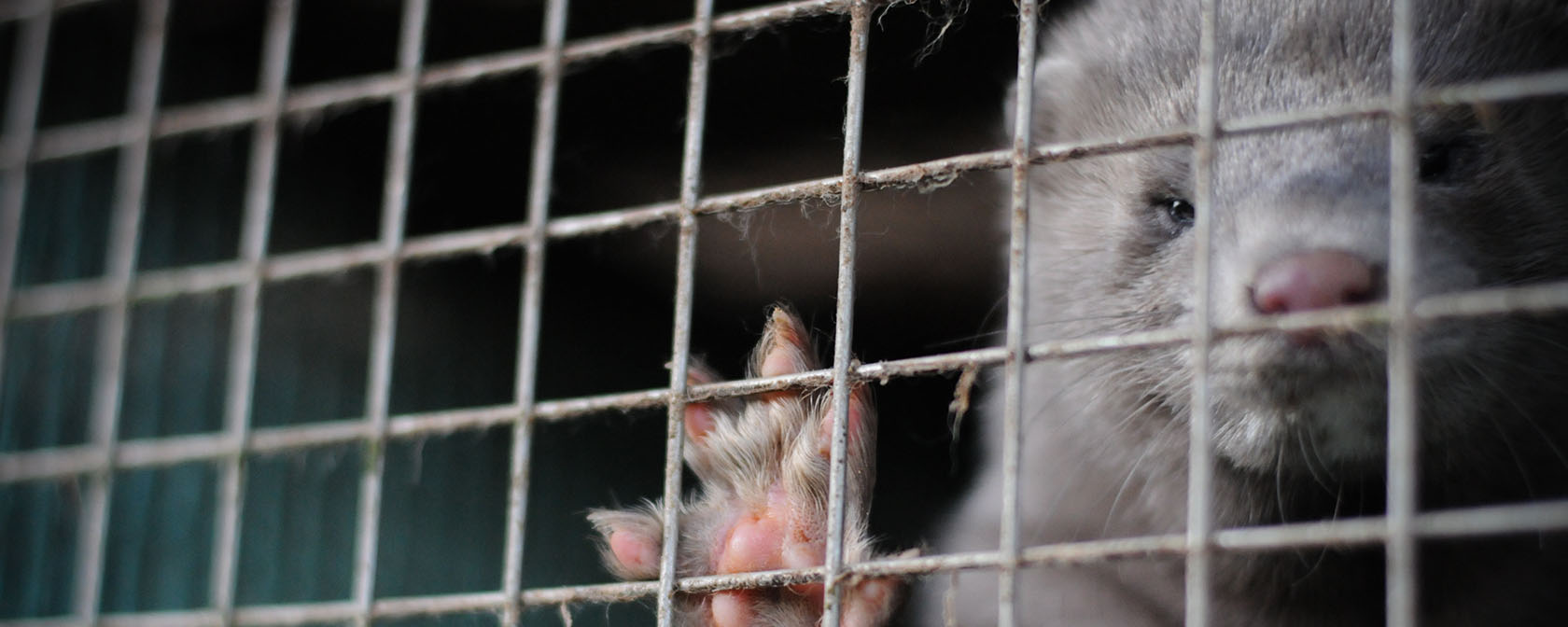By Sara Amundson and Kitty Block
The COVID relief package Congress just passed includes a number of provisions that will improve surveillance and inspection of trades where animals often endure acute suffering and that also tend to be hotbeds for disease spread.
The American Rescue Plan Act of 2021 is primarily designed to provide relief to the American people, protect them from further risks of infection, and prevent additional suffering, death and economic losses stemming from the pandemic. We are excited that members of Congress, at our urging, also acknowledged the close link between public health and animal welfare by allocating millions of dollars to properly regulate or restrict businesses and trades that exploit animals most susceptible to contracting and spreading diseases. This includes the wildlife trade, in which millions of wild animals, including endangered and at-risk species, suffer every year, and mink fur farms. Since the onset of the pandemic last year, nearly 20 million mink have been gassed to death globally on infected fur farms.
Here are some of the significant funding reforms included in the bill:
- $300 million for U.S. Department of Agriculture monitoring and surveillance of animals susceptible to the virus. We are pushing for a portion of these funds to be allocated for data collection and monitoring at fur (and especially mink) farms, and for that data to be made public. Four U.S. states and 10 nations, in addition to the United States, have reported infected mink on fur farms, leaving no doubt that these facilities, where these wild animals spend their entire lives in tiny cages before being killed cruelly, are dangerous reservoirs for zoonotic diseases and mutations.
- $95 million for the U.S. Fish and Wildlife Service for activities to proactively prevent pandemic spread by wildlife and crack down on wildlife trafficking, including endangered and at-risk species. This funding was included thanks to the leadership of Rep. Raul Grijalva, D-Ariz., the chair of the House Natural Resources Committee.
- Of this, $20 million would go toward wildlife inspections, interdictions and investigations, as well as related activities to address wildlife trafficking;
- $30 million would be allocated for the care of captive species listed under the Endangered Species Act, rescued and confiscated wildlife, and federal trust species living in facilities that have lost revenue due to the pandemic;
- $45 million would go toward strengthening early detection, rapid response, and science-based management for wildlife disease outbreaks before they become pandemics, and expand capacity for early detection of zoonotic diseases that might jump the species barrier in the United States.
- $10 billion for the State Department and the U.S. Agency for International Development (USAID) for certain COVID-19 prevention, preparation and response activities, including vaccinations, economic and food security stabilization, and disaster relief. These activities can also include zoonotic disease monitoring and surveillance. Congress is now considering the Preventing Future Pandemics Act (H.R. 151/ S. 37) (H.R. 151/ S. 37), which would bolster similar USAID and State Department programs to address the threats and causes of zoonotic disease outbreaks. With the COVID relief package assigning significant funding to conduct these activities, we urge Congress to quickly pass the Preventing Future Pandemics Act so these agencies can get to work.
- $10 million for the USFWS to continue listing certain species as injurious under the Lacey Act, which would prohibit their import and restrict the movement or acquisition of these species. Species listed as injurious are deemed to be harmful to the interests of human beings, agriculture, horticulture, forestry, wildlife or wildlife resources in the United States.
The bill is now headed to President Biden, who is expected to sign it. We are grateful to members of Congress who worked with us to include these reforms, and we look forward to their continued support. Last year, the Humane Society family released an 11-point policy plan targeted at reducing animal suffering and helping prevent future national and global pandemics. We are proud of the progress we have made so far, including with this relief package, and we will continue our work with lawmakers and business leaders globally to ensure we continue to move forward on a path of meaningful reform that will benefit public health and animal welfare.
Kitty Block is President and CEO of the Humane Society of the United States.




